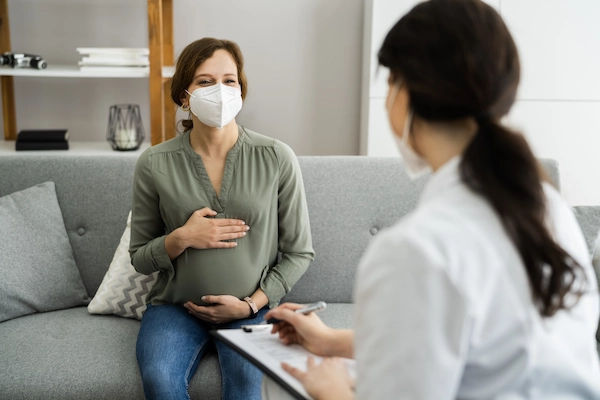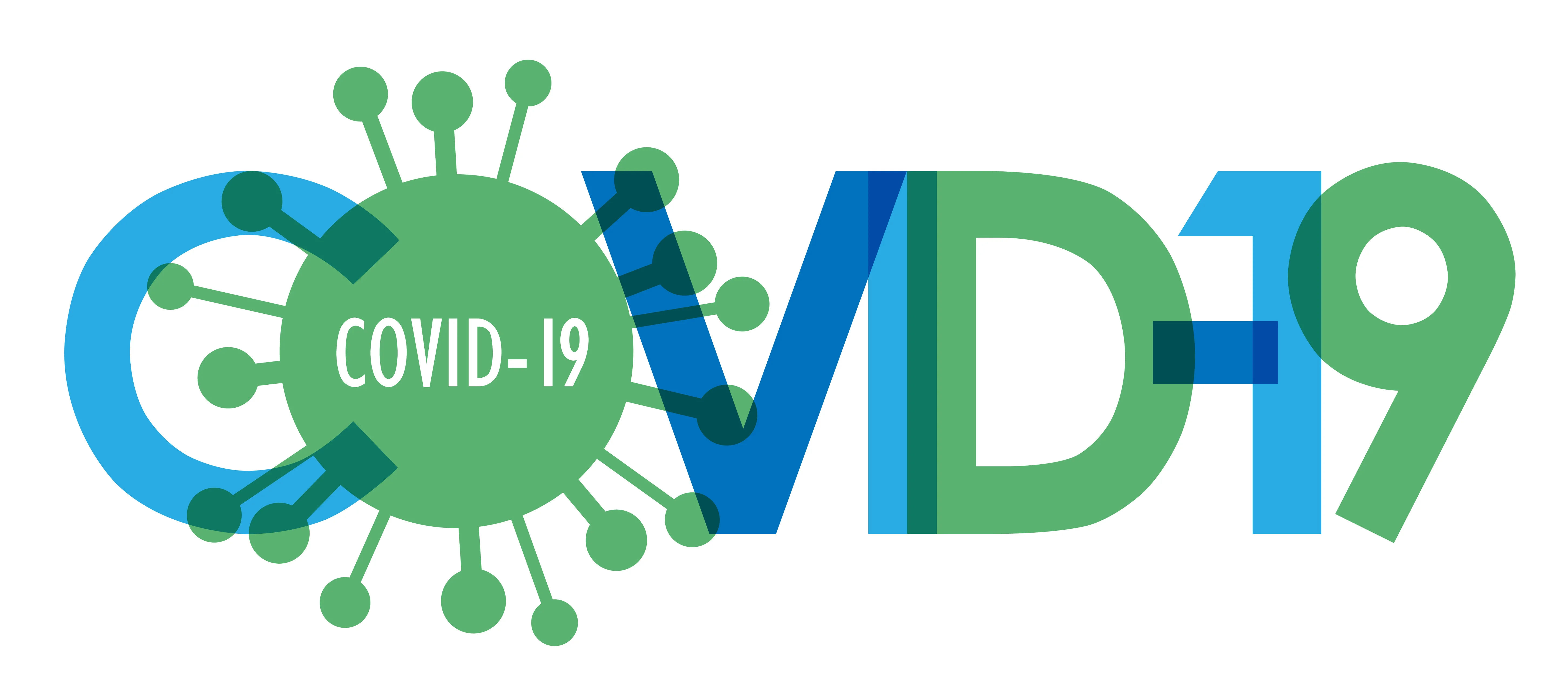JN.1 COVID Variant: Symptoms, Risks, and What You Should Know
Learn about the JN.1 COVID variant, current COVID symptoms, who’s at risk, testing, treatment, and prevention tips backed by trusted medical sources.

.webp?tr=q-80,f-webp,w-350,dpr-2,c-at_max 700w)
Introduction
COVID-19 continues to evolve, and the JN.1 COVID variant became one of the most common strains circulating worldwide after late 2023. If you’re wondering how JN.1 might affect you, what COVID symptoms to watch for, and how to stay protected, you’re in the right place. Below, you’ll find clear, reliable guidance from trusted sources so you can make informed decisions for yourself and your family.
What is the JN.1 COVID variant?
JN.1 is a descendant of the Omicron family of SARS-CoV-2. The World Health Organization (WHO) identified JN.1 as a Variant of Interest in December 2023 because it spread quickly and showed signs of immune escape (the ability to evade some existing immunity from past infection or vaccination). Importantly, health agencies have not found evidence that JN.1 causes more severe disease than other recent Omicron lineages. It does, however, spread efficiently, which is why it rose quickly in many countries.
Where did JN.1 come from?
JN.1 branched off from BA.2.86 (sometimes nicknamed “Pirola”), itself an Omicron sublineage with many spike protein changes. These changes can help the virus infect people who have some pre-existing immunity, though vaccines continue to offer strong protection against severe illness, hospitalisation, and death.
How does JN.1 spread?
Here’s how the JN.1 spread:
- Mainly through respiratory particles when an infected person breathes, talks, coughs, or sneezes
- Risk increases in crowded, indoor, and poorly ventilated spaces
- Transmission can occur before symptoms appear or if symptoms are mild
Most Common COVID Symptoms with JN.1
The JN.1 COVID variant tends to cause symptoms similar to other Omicron strains. Symptoms can range from very mild to severe, and not everyone will have all of them.
Common COVID symptoms:
- Sore or scratchy throat
- Cough (dry or with phlegm)
- Runny or blocked nose
- Fatigue or low energy
- Headache
- Fever or chills
- Muscle or body aches
- Sneezing
- Shortness of breath, especially in those with underlying conditions
- Loss or change in taste or smell (less common now but still reported)
- Gastrointestinal symptoms such as nausea, vomiting, or diarrhoea
Early symptoms to watch for”
- Sore throat and congestion are frequent early signs with Omicron-lineage variants like JN.1
- Some people experience headache, fatigue, or body aches first
- If you’re at higher risk for severe illness, contact your healthcare provider promptly as antivirals work best when started early
Consult Top Specialists
When to Seek Urgent or Emergency Care?
Call emergency services or go to hospital immediately if you have:
- Trouble breathing or worsening shortness of breath
- Persistent chest pain or pressure
- New confusion
- Inability to wake or stay awake
- Bluish, grey, or very pale lips or face
- This list is not exhaustive—seek help if something feels seriously wrong.
Who is Most at Risk of Severe Illness?
Most infections with JN.1 are mild to moderate, but higher risk groups include:
- Adults aged 65 and over
- People with chronic conditions (heart, lung, diabetes, obesity, kidney disease)
- Immunocompromised individuals (due to illness or medication)
- Pregnant and recently pregnant people
- Those unvaccinated or not up to date with vaccination
- Very young children with medical conditions
Testing: Do tests detect JN.1?
Yes. PCR and antigen (rapid) tests can detect current variants, including JN.1.
- PCR tests are highly sensitive and detect even low viral levels.
- At-home antigen tests are convenient and work best when you have symptoms and a high viral load.
If your first antigen test is negative but you have symptoms, repeat after 48 hours. If exposed but asymptomatic, test up to three times 48 hours apart. PCR tests can be used any time and are more sensitive.
If you test positive, follow local public health guidance and consult your healthcare provider—especially if you’re at higher risk or your symptoms are worsening.
Vaccines and Protection Against JN.1
Updated COVID-19 vaccines continue to reduce the risk of severe illness, hospitalisation, and death from circulating variants like JN.1. Even if infection occurs, vaccination helps your body respond faster and lowers the chance of serious outcomes.
Key points
- Stay up to date with the latest recommended COVID-19 vaccine for your age and risk group
- Immunity can fade over time—boosters restore strong protection
- Vaccination may also reduce the risk of long COVID, though not completely eliminate it
Treatment if you Test Positive
Effective treatments are available and work best when started early. If you’re at higher risk, contact your healthcare provider promptly.
Common outpatient options (availability varies by country)
- Nirmatrelvir/ritonavir (Paxlovid): Oral antiviral for eligible adults and some adolescents with risk factors
- Remdesivir: Antiviral given by IV over several days
- Molnupiravir: Oral antiviral alternative when others are unsuitable
Your clinician will consider your age, medical conditions, and other medicines before prescribing. Do not start or stop any medication without advice. If symptoms worsen, seek medical care immediately.
What to do if you’re sick: current practical guidance?
Public health advice evolves, but these general steps are widely recommended:
- Stay home while unwell; return to normal activities only when symptoms are improving and you’ve been fever-free for 24 hours without medication. Continue precautions (masking, ventilation) for several days.
- Improve ventilation: open windows, use air purifiers, or spend time outdoors.
- Wear a high-quality mask around others, especially indoors or near vulnerable people.
- Practise good hygiene: cover coughs, wash hands often, and avoid sharing personal items.
- Clean frequently touched surfaces and isolate where possible within shared homes.
Reducing your risk day to day
- Keep vaccinations up to date
- Use a well-fitting mask in crowded or poorly ventilated areas
- Ensure good airflow indoors
- Test before visiting vulnerable people or when symptomatic
- If eligible for antivirals, plan access in advance
Long COVID: what to know
Long COVID can follow infections of any severity, including mild cases. Symptoms may include fatigue, brain fog, breathlessness, sleep issues, and more lasting weeks or months. Vaccination reduces—but doesn’t remove—the risk. If symptoms persist, seek medical advice. Tailored rehabilitation and pacing strategies may help recovery.
What we know—and what’s still being studied?
Here’s an overview of what you might know:
What we know
- JN.1 spreads efficiently and shows immune-evasive traits
- Vaccines remain highly protective against severe outcomes
- Current tests and antivirals work against JN.1
- Most cases are mild to moderate, but high-risk groups may develop severe disease
What’s still being studied
- Duration of protection from newer vaccine formulations
- Patterns and prevalence of long COVID following JN.1 infection
- How future variants may alter symptoms or transmission
Consult Top Specialists
Consult Top Specialists

Dr. Rajib Ghose
General Physician/ Internal Medicine Specialist
25 Years • MBBS
East Midnapore
VIVEKANANDA SEBA SADAN, East Midnapore

Dr. Ajay K Sinha
General Physician/ Internal Medicine Specialist
30 Years • MD, Internal Medicine
Delhi
Apollo Hospitals Indraprastha, Delhi
(200+ Patients)

Dr. Hariprasath J
General Physician/ Internal Medicine Specialist
19 Years • MD (Gen Med), FCCP, Dip (Diabetology, UK)
Chennai
Apollo First Med Hospitals P H Road, Chennai
(225+ Patients)

Dr. Naresh
General Physician/ Internal Medicine Specialist
5 Years • MBBS, MD (General Medicine)
Mahbubnagar
SIMS HOSPITAL, Mahbubnagar

Dr. Rajiv Kumar
General Physician/ Internal Medicine Specialist
16 Years • MBBS, M.D.
Pune
Apollo Clinic, Viman Nagar, Pune
Consult Top Specialists

Dr. Rajib Ghose
General Physician/ Internal Medicine Specialist
25 Years • MBBS
East Midnapore
VIVEKANANDA SEBA SADAN, East Midnapore

Dr. Ajay K Sinha
General Physician/ Internal Medicine Specialist
30 Years • MD, Internal Medicine
Delhi
Apollo Hospitals Indraprastha, Delhi
(200+ Patients)

Dr. Hariprasath J
General Physician/ Internal Medicine Specialist
19 Years • MD (Gen Med), FCCP, Dip (Diabetology, UK)
Chennai
Apollo First Med Hospitals P H Road, Chennai
(225+ Patients)

Dr. Naresh
General Physician/ Internal Medicine Specialist
5 Years • MBBS, MD (General Medicine)
Mahbubnagar
SIMS HOSPITAL, Mahbubnagar

Dr. Rajiv Kumar
General Physician/ Internal Medicine Specialist
16 Years • MBBS, M.D.
Pune
Apollo Clinic, Viman Nagar, Pune
More articles from Covid
Frequently Asked Questions
Is the JN.1 COVID variant more severe than earlier variants?
Current evidence from global health agencies does not show that JN.1 causes more severe disease than other recent Omicron variants. However, it spreads easily, so many people can become infected at once, and those at higher risk can still get very sick.
What are the typical covid symptoms with JN.1?
Most people report upper-respiratory symptoms: sore throat, cough, runny nose, congestion, headache, fatigue, fever or chills, and body aches. Some have shortness of breath or gastrointestinal symptoms. Loss of taste or smell can happen but is less common than in earlier waves.
Do rapid at-home tests detect JN.1?
Yes. Antigen tests detect JN.1 but can be negative early in infection. If you have symptoms and test negative, repeat the test after 48 hours or get a PCR test for confirmation.
Should I get treated if I test positive?
If you’re at higher risk for severe illness (older age, certain health conditions, pregnancy, immunocompromise), contact your healthcare provider right away about antiviral treatment. These medicines work best when started within the first few days of symptoms.
What’s the best way to protect my household?
Keep vaccines up to date, improve indoor air (ventilation and filtration), wear a high-quality mask in crowded indoor spaces, test when symptoms start or after exposure, and stay home while you’re sick. If someone in your home is vulnerable, add layers of protection—especially during community surges.




